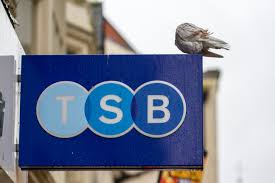The government has taken £4.8bn in inheritance tax (IHT) for the period between April and November this year, new HMRC figures have shown.
This is around £600m more than the same period in 2021, the data revealed.
HMRC has stated that a spike in receipts this November was due to “a small number of higher-value payments than usual”.
IHT thresholds were frozen by a further two years until April 2028 by the government last month, in a move that will likely see more estates caught in the IHT net.
The threshold, or the nil rate band, has been £325,000 per single person since April 2009, while there is also an additional transferrable main residence nil rate band of £175,000 available when passing the family home down to children or other direct descendants. The standard IHT rate is 40% and is only charged on the part of an estate above the threshold.
Commenting on the latest IHT figures, technical director at Canada Life, Andrew Tully, said: “The latest IHT receipts shows we are on for a record breaking year. With thresholds frozen until at least April 2028, more estates will be coming in from the cold and will likely be caught in this widening tax net, and this is despite predicted house price falls in 2023.
“Financial advisers will be helping by discussing estate planning solutions with clients and their wider families. Engaging early with good planning can help to reduce or mitigate IHT so its essential anyone who considers IHT to be an issue should be seeking expert advice now.”
Tax and financial planning expert at Quilter, Rachael Griffin, added: “IHT is fast becoming a profitable area for the government, largely due to the rapid rise in house prices seen in recent years causing more people to tip over the threshold.
“Making pensions subject to IHT would be counter-intuitive to encouraging people to save for their retirement, and with the lack of certainty on the direction of social care it is crucial that people continue to put their own financial plans in place.
“Given IHT thresholds have already been frozen, more and more people will already be dragged into paying what is often regarded as one of the nation’s most hated taxes, let alone if pensions were to be brought into the mix. IHT has traditionally been viewed as a tax on wealthier individuals, but the number of people caught in the IHT net has been rising steadily for some time now and this number will only continue to rise as we move further into the freeze.”
Latest News
-
Residential property transactions fall 24% month-on-month
-
Later life lending loans jump 5.1% in Q4 2025
-
Mortgage Awards 2026: Winners announced
-
FCA outlines proposals to close gaps in borrowers’ credit files
-
St. James’s Place closes 2025 with record FuM
-
Average LTV on UK mortgaged home drops to 59% – IMLA
Mortgage Advice Bureau and AI in the mortgage sector
Chief executive officer at Mortgage Advice Bureau, Peter Brodnicki, and founder and managing director at Heron Financial, Matt Coulson, joined content editor Dan McGrath to discuss how Mortgage Advice Bureau is using artificial intelligence to make advancements in the mortgage industry, the limitations of this technology and what 2026 will hold for the market
Perenna and the long-term fixed mortgage market

Content editor, Dan McGrath, spoke to head of product, proposition and distribution at Perenna, John Davison, to explore the long-term fixed mortgage market, the role that Perenna plays in this sector and the impact of the recent Autumn Budget
NEW BUILD IN FOCUS - NEW EPISODE OF THE MORTGAGE INSIDER PODCAST, OUT NOW

Figures from the National House-Building Council saw Q1 2025 register a 36% increase in new homes built across the UK compared with the same period last year, representing a striking development for the first-time buyer market. But with the higher cost of building, ongoing planning challenges and new and changing regulations, how sustainable is this growth? And what does it mean for brokers?
Does the North-South divide still exist in the UK housing market?

What do the most expensive parts of the country reveal about shifting demand? And why is the Manchester housing market now outperforming many southern counterparts?
In this episode of the Barclays Mortgage Insider Podcast, host Phil Spencer is joined by Lucian Cook, Head of Research at Savills, and Ross Jones, founder of Home Financial and Evolve Commercial Finance, to explore how regional trends are redefining the UK housing, mortgage and buy-to-let markets.
In this episode of the Barclays Mortgage Insider Podcast, host Phil Spencer is joined by Lucian Cook, Head of Research at Savills, and Ross Jones, founder of Home Financial and Evolve Commercial Finance, to explore how regional trends are redefining the UK housing, mortgage and buy-to-let markets.
© 2019 Perspective Publishing Privacy & Cookies











Recent Stories